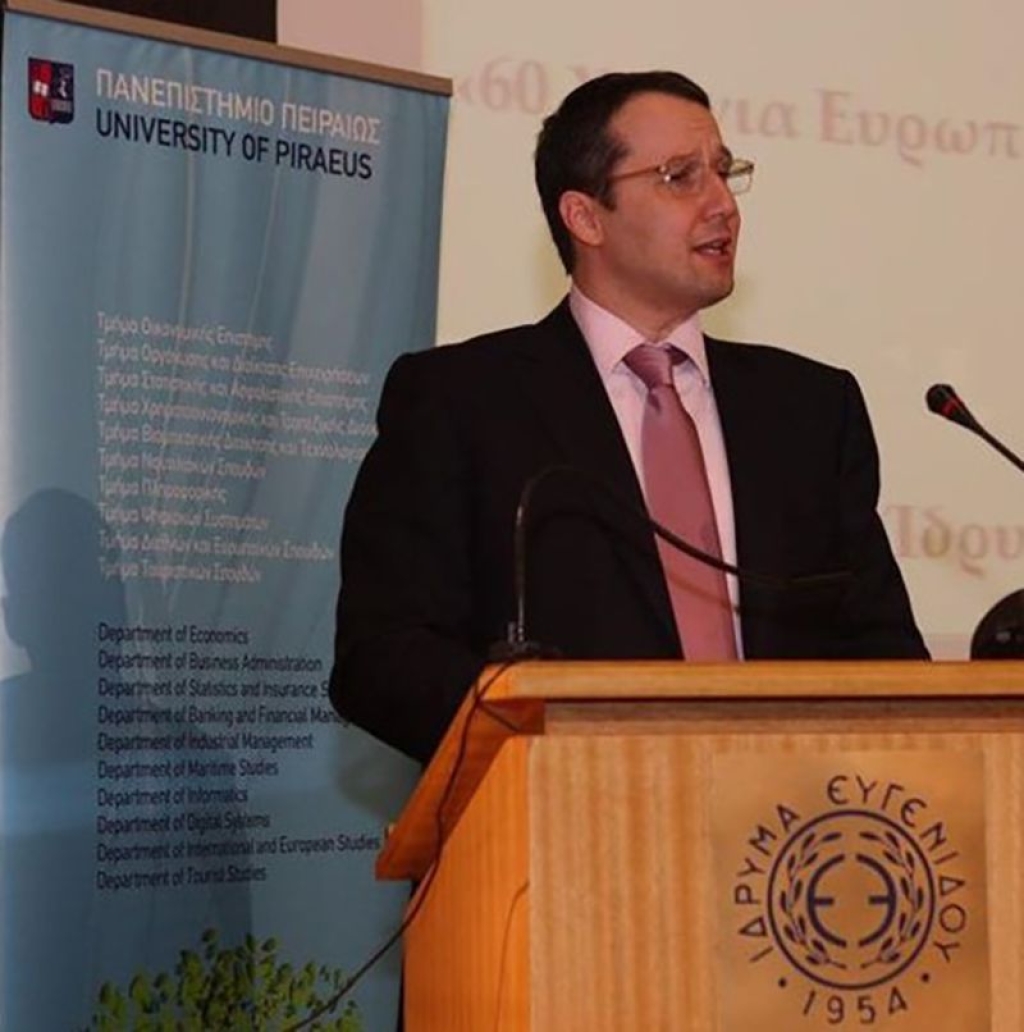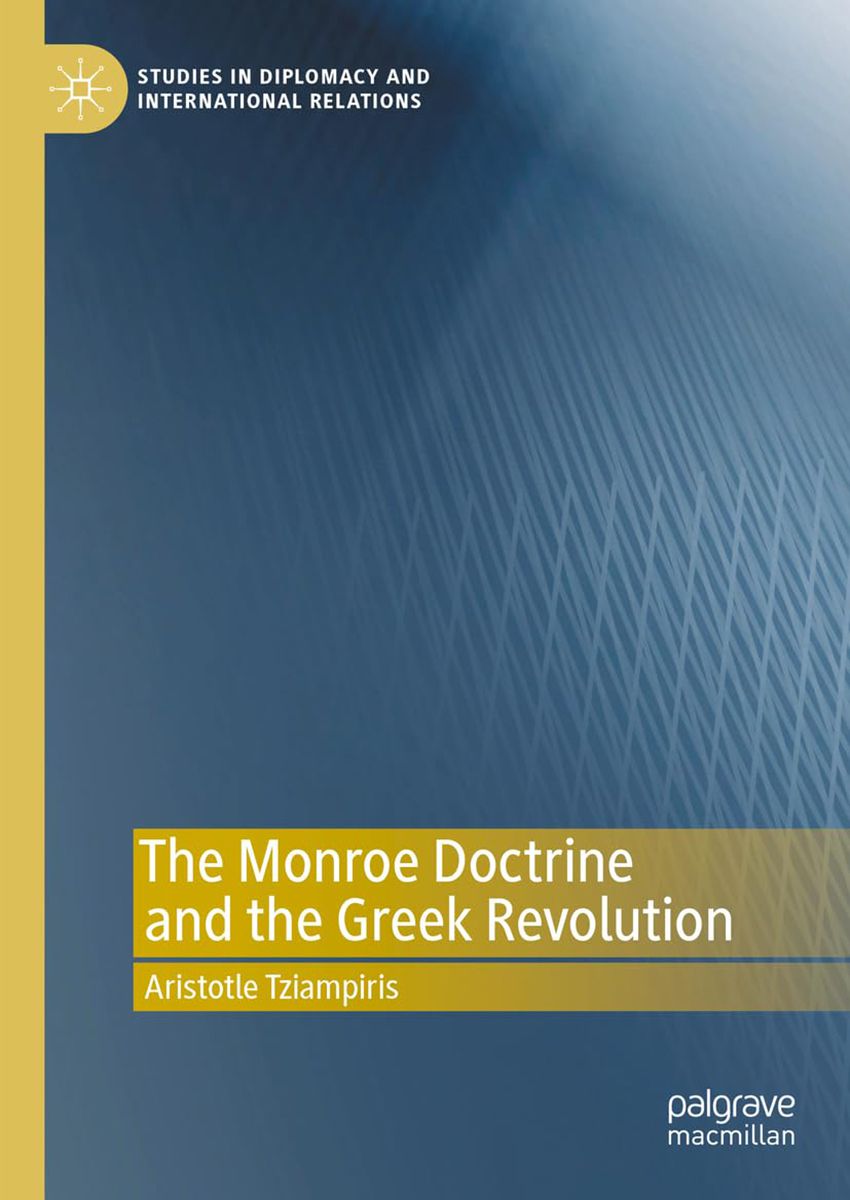Public Lecture “The Monroe Doctrine and Greek-American Relations”

"The Monroe Doctrine and Greek-American Relations" is the title of the public lecture that Dr. Aristotle Tziampiris will deliver in English open to the public at the Bissell Library of ACT on Tuesday, November 14th, 2023, at 15:00. Dr. Tziampiris, Professor of International Relations and Chair of the Department of International and European Studies, University of Piraeus, has recently published the book "The Monroe Doctrine and the Greek Revolution (Studies in Diplomacy and International Relations, Palgrave McMillan, 2023).
Based on his thorough research, Professor Tziampiris examines how the Greek Revolution and the Monroe Doctrine defined Hellenic-American relations for the following centuries.
The 1821 Greek Revolution elicited widespread and multifaceted support from America's free citizens, regardless of region, class, wealth, sex, religion, or partisan affiliation. The "Greek Fire" burned bright and intense in nineteenth-century America. Nevertheless, the promulgation of the Monroe Doctrine led to the non-recognition of the republican Greek revolutionaries. Forged by the interaction of multiple forceful personalities operating within specific institutions and representing a high point for the well-established tradition of neutrality in international affairs, the Doctrine aimed to navigate the treacherous headwinds of Great Power politics. It aimed to promote national unity and maximize America's power and independence of action while minimizing entanglements and interventions by European countries, yet the fact remains that public opinion was not heeded when it came to the issue of Greece. We will thus evaluate the reasons that led to Greece's non-recognition. Personal political or financial ambitions will not be deemed to have sufficient explanatory power. Broader commercial interests, in conjunction with the tradition of neutrality and the ultimate American ambition for Hemispheric hegemony, created a framework that made the recognition of Greece in 1823 extremely difficult, given how President Monroe and his Administration defined the national interest. However, what remains remarkable is how high on the policy agenda the Greek Revolution was and how close it came to being politically vindicated.
This public lecture will argue that the specific case study discussed essentially set the parameters for Greek-U.S. relations for the following two centuries.
- Short bio
Dr. Aristotle Tziampiris is Professor of International Relations and Chair of the Department of International and European Studies at the University of Piraeus, as well as Director of the MSc Program in American Studies: Politics, Strategy & Economics (taught in cooperation with New York University's Center on Global Affairs). He is also the President of the Council for International Relations-Greece (CFIR-GR), a member of the Board of Directors of "Study in Greece", Visiting [Non-Resident] Scholar at the Center on Public Diplomacy of the University of Southern California (USC), Standing Fellow at New York University's Remarque Institute, Honorary Supporter of the Benaki Museum and "Champion" of Women Act (Greece).
Dr. Tziampiris is the author of The Monroe Doctrine and the Greek Revolution (Palgrave Macmillan, 2023); The Emergence of Israeli-Greek Cooperation (Springer, 2015); Faith and Reason of State: Lessons from Early Modern Europe and Cardinal Richelieu (Nova Science, 2009); Kosovo's Endgame: Sovereignty and Stability in the Western Balkans (IAA, 2006); International Relations and the Macedonian Question (ELIAMEP, 2003) [in Greek]; Greece, European Political Cooperation and the Macedonian Question (Ashgate Press, 2000); co-editor (with Foteini Asderaki) The New Eastern Mediterranean Transformed: Emerging Issues and New Actors (Springer, 2021); co-editor (with Spyridon Litsas) The New Eastern Mediterranean: Theory Politics and States in a Volatile Era (Springer, 2019), co-editor (with Spyridon Litsas) Foreign Policy Under Austerity: Greece's Return To Normality? (Palgrave Macmillan, 2016), and co-editor (with Spyridon Litsas) The Eastern Mediterranean in Transition: Multipolarity, Politics, and Power (Ashgate Press, 2015).















